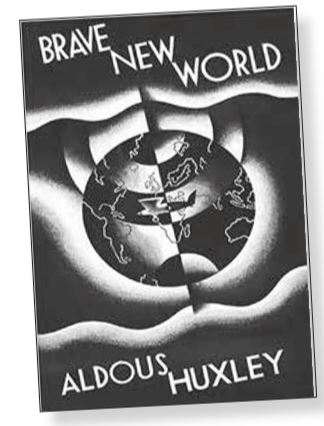With some lazy days in the sun ahead, Simon Jarrett suggests eight novels that entertain, engross and tell us something about attitudes to learning disability
Walter
David Cook (1978)
This is a beautifully observed account of the life of Walter, a young man left alone after his mother’s death, who is moved into the local long-stay “mental handicap” hospital in the north of England. The 1979 sequel Winter Doves is also excellent.
Brave New World
Aldous Huxley (1932)
A grim portrayal of a future where people are bred to suit the purposes of society. An elite alpha-grade intelligent class rule, while grinning epsilon-grade “semimorons” carry out the menial jobs.
The Secret Agent
Joseph Conrad (1907)
The full title of this novel written at the height of the eugenics era is The Secret Agent: A Simple Tale. It tells the story of a young
“defective” man duped by a group of international anarchists into attempting to place a bomb at the Greenwich Observatory.
Tasting the Wind
Allan Mayer (2008)
Mayer’s murder mystery is based on a group of ex-hospital patients who have moved into a group home in London. It is both brilliantly funny and very, very serious, often at the same time, and is intelligently insightful about that whole 1980s era of the “great return” from hospitals to the community.
The Fifth Child
Doris Lessing (1988)
Ben, the unlucky fifth child of the hitherto charmed Lovatt family, exerts a strange and disturbing influence on all those around him, and the family begins to fall apart. The learning disabled youth is understood only by those who are also outsiders. The sequel, Ben, in the World (2000), follows him into adulthood.
The Sound and the Fury
William Faulkner (1929)
A difficult but rewarding read, this extraordinary novel tells the story of the dysfunctional Compson family in the deep south of Mississippi, a fading white family surrounded by a retinue of black servants and labourers. The story is told from four perspectives, one of them the profoundly disabled and voiceless Benjamin “Benjy” Compson, in a stream of consciousness style.
Barnaby Rudge
Charles Dickens (1841)
Although written in the 1840s, this is Dickens’ imagining of London in 1780, when it was convulsed by the anti-Catholic Gordon Riots. Young Barnaby, a half-loveable, half-frightening “idiot”, gets caught up in the riots with calamitous consequences.
Of Mice and Men
John Steinbeck (1937)
Many of us read this short novel at school, perhaps not registering that one of the two central characters, Lennie, is a man with a learning disability. His friendship with the non-learning-disabled George, as they seek work in great-depression America, is a story of both love and tragedy
